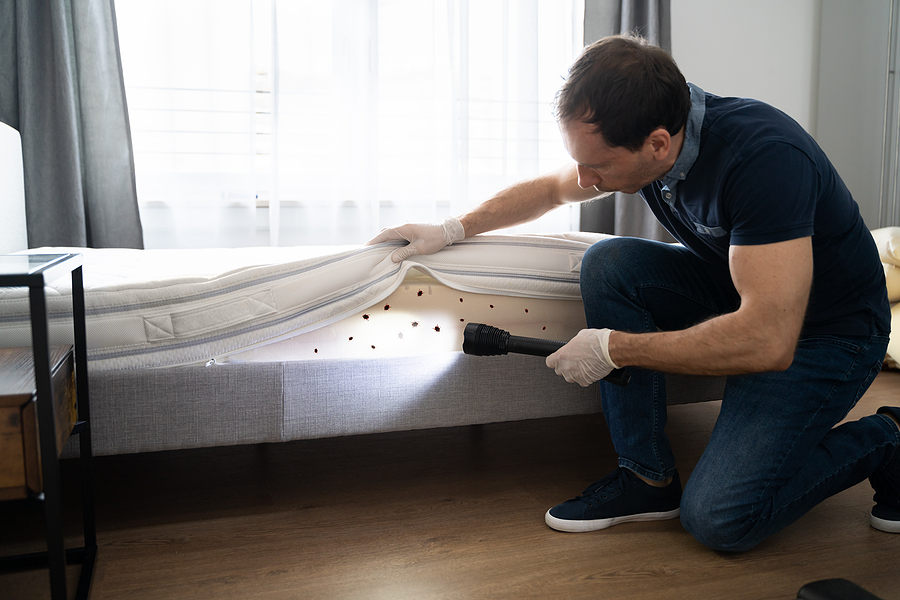What Makes Bed Bugs So Difficult to Get Rid Of?
Bed bugs are a pest that can easily spread as they hunker down in areas where humans frequent, such as bedding and furniture items that are shared. These pests often go undetected since they emerge to feed on humans as they sleep and hide in discreet spaces until they come out to eat.

There are actually many bugs that look like bed bugs, so oftentimes an accurate ID is difficult, and the types of bugs that resemble bed bugs will vary depending on your region of the country. The EPA has some detailed photos to help with correctly identifying signs of an infestation.
Once detected they are difficult to get rid of but not impossible. The key is identifying them so you'll know if it's actually bed bugs biting you or if it's some other pest. Some reasons they have a reputation for being difficult to get rid of are as follows:
- Bed bugs have adapted to survive harsher environments. The bed bugs that you see today are quite different from the ones found 20 years ago. The modern bed bug exoskeleton has evolved to be stronger in recent years. This exoskeleton has high levels of enzymes and oxidizers which break down common insecticides thus making them immune to many common pesticides that might have worked previously.
- Bed bugs are fast breeders. A female bed bug spends her entire existence pregnant. Each female bed bug can lay up to 500 eggs during her lifetime. Within a few months of hatching they start to breed, so a few bed bugs can become thousands in a very short time. Most people keep their homes at the ideal temperature for bed bugs to reproduce, 70 to 82 degrees Fahrenheit, creating an ideal environment for these pests to thrive.
- Bed bugs don't require an additional food source. They feed on blood, but if there is no host to feed on, they can survive a long time without eating. The adult bed bugs can live over 500 days with no food and when they do eat, they can consume a great deal of blood at once to keep them alive when there is no host.
- Bed bugs are truly experts at evolving. Scientists have found that the bed bug possesses genes from other organisms, which makes them even harder to kill. They are literally living fossils that have adapted over time. There are 400 plus species of bacteria that live both inside and on the exterior of bed bugs. The bacteria have a symbiotic relationship with the bed bugs and appear to help keep them alive by fending off viruses, pesticides, and other harmful substances. Their ability to genetically change and evolve is one of the main reasons they are so hard to kill. Even if a pesticide works to kill the insects now, the same product likely won't work a decade from now after the bugs have had a chance to adapt.
- Bed bugs are expertly elusive. Because of their hard, small, and flat bodies they can squeeze into cracks and crevices which often makes detection difficult. They are usually only detected once the colony has greatly increased in size. Bed bugs hide behind household items such as wallpaper, along baseboards, under floorboards, and even inside electrical outlets so they can effectively hide and avoid detection until someone who really knows how to spot them comes along.
Since bed bugs are so hard to eliminate, professional pest control is often needed for a thorough extermination of these pests. If you suspect a bed bug infestation or any other pests contact the professionals at Spence’s Pest Control.












